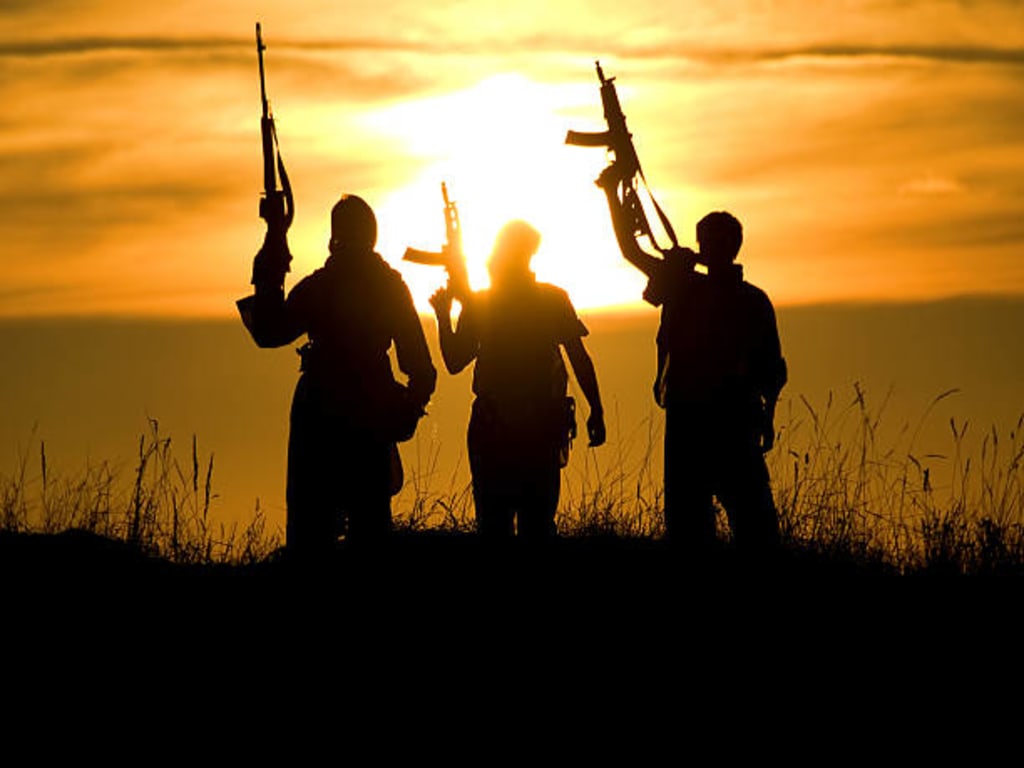
In the vast and diverse continent of Africa, where cultures intermingle and histories intertwine, an ominous specter has emerged that haunts the very fabric of society. Boko Haram, a jihadist insurgency based in northeastern Nigeria, has garnered global attention for its ruthless acts of terror and its profound impact on the lives of millions. This expose sheds light on the origins, ideologies, and devastating consequences of this extremist group, while also highlighting the resilience and courage of those affected by its menacing presence.
Origins and Ideology: The Birth of Boko Haram
Boko Haram, which translates to "Western education is forbidden," was founded in the early 2000s by the charismatic and enigmatic figure, Mohammed Yusuf. The group emerged in the Borno state of northeastern Nigeria, a region characterized by poverty, corruption, and social unrest. Disenfranchised and marginalized youth found solace in Yusuf's charismatic rhetoric, which denounced Western education, democracy, and everything deemed "un-Islamic."
Driven by a distorted interpretation of Islam, Boko Haram sought to establish an Islamic caliphate governed by its strict interpretation of Sharia law. Their extremist ideology condemned Western influence, labeling secular education as a tool of corruption and moral decay.
Rise of Terror: Boko Haram's Campaign of Violence
Boko Haram's insurgency has been characterized by a relentless campaign of violence against civilians, security forces, and government establishments. Their attacks have led to the deaths of tens of thousands and forced millions to flee their homes in search of safety. Suicide bombings, abductions, mass shootings, and village raids have become commonplace, leaving a trail of devastation in their wake.
One of Boko Haram's most infamous acts was the 2014 kidnapping of 276 schoolgirls from Chibok, an incident that drew international outrage and brought the group into the global spotlight. Tragically, many of these girls remain missing, with their fate still uncertain.
Impact on Society: A Nation in Turmoil
The reign of terror unleashed by Boko Haram has had far-reaching consequences on Nigeria's social fabric and economy. Beyond the loss of lives and displacement of communities, the group has sowed seeds of fear and distrust among the populace. Schools, markets, places of worship, and public spaces have become targets of attacks, leading to a breakdown of normalcy and a crippling sense of insecurity.
Furthermore, the insurgency has exacerbated existing divisions between religious and ethnic groups, further fragmenting the nation's already delicate unity. Boko Haram's actions have stoked animosities, posing a significant challenge to the nation's efforts towards reconciliation and peaceful coexistence.
Resilience and Hope: The Courage of Survivors
In the face of unimaginable adversity, the people affected by Boko Haram's terror have displayed remarkable resilience and strength. Despite the horrors they have endured, survivors and communities have banded together to rebuild their lives and assert their humanity in the face of violence.
Local organizations, grassroots initiatives, and international aid have played a crucial role in providing support to the victims of Boko Haram. Education and counseling programs have been established to help the survivors heal from trauma and reintegrate into society. These efforts serve as a testament to the human spirit's capacity to endure and rebuild, even in the darkest of times.
Challenges Ahead: The Road to Reconciliation
As the Nigerian government and international partners continue to combat Boko Haram's menace, significant challenges persist. Military operations have had mixed success in curbing the insurgency, and concerns about human rights abuses by security forces have emerged. Addressing the root causes of radicalization, such as poverty, unemployment, and political corruption, remains a critical yet complex task.
Moreover, reintegration and deradicalization efforts are essential to bring former members of Boko Haram back into society and prevent further recruitment. Rehabilitation programs must focus on providing education, vocational training, and psychological support to ensure that disillusioned individuals have an alternative path to follow.
Conclusion: A Long Road to Peace
Boko Haram's reign of terror has cast a dark shadow over Nigeria and the wider region. The group's extremist ideology and ruthless acts have left an indelible mark on countless lives. Yet, amidst the darkness, there are sparks of hope and resilience.
As the world rallies together to confront the menace of Boko Haram, it is vital to remember the courage of survivors and the determination of communities to rebuild their lives. The path to peace is arduous, but through concerted efforts, empathy, and solidarity, Nigeria can find the strength to overcome this dark chapter and forge a brighter future for its people. Only then can the nation truly overcome the menace of Boko Haram and embark on a journey of healing and reconciliation.
About the Creator
Abel A.
A writer which has learned from the different spheres of life and an ardent cryptocurrency head






Comments
There are no comments for this story
Be the first to respond and start the conversation.